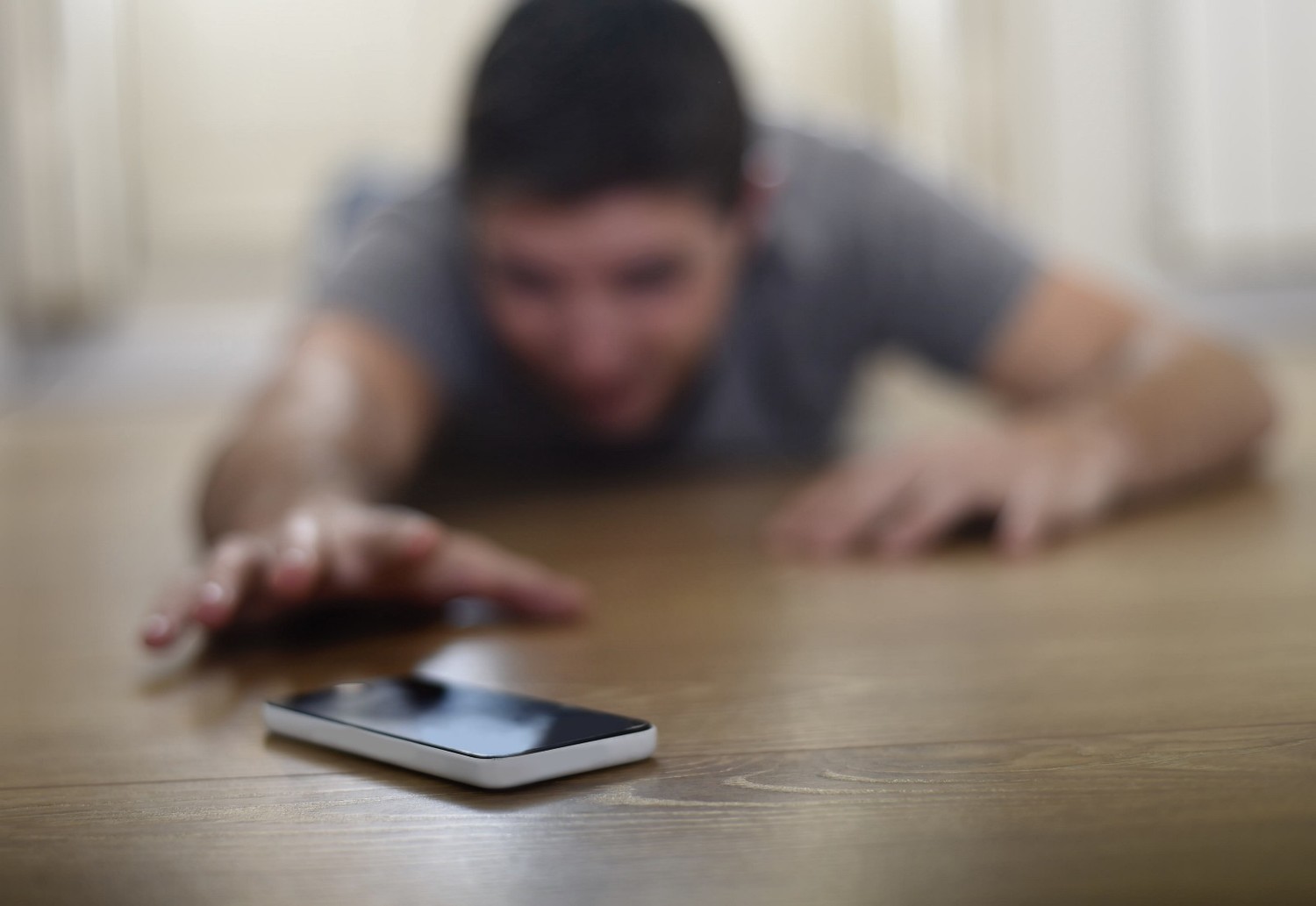If you’re like most people, you’re probably using your smartphone a lot. A LOT. You may even joke about you being closer to your smartphone than your significant other, because you spend all day (and night) with it — and perhaps pay more attention to it than your partner. Most likely the first thing you do in the morning is check your phone for emails, news, Facebook or Instagram messages, and of course, Trump’s latest tweets.
Your smartphone is always in your pocket, on your desk at work, with you in the restroom, on the table when you eat, and in the car when you drive. It’s the last thing you see before you go to sleep (after the goodnight kiss, of course), and sometimes when you wake up in the middle of the night. But you’re not addicted to it, right? RIGHT?
Or, are you?
Here’s a simple test: Replace your smartphone with a regular, old-fashioned mobile phone for one week. Just one week. You can keep your phone number, make calls, and send and receive text messages. It will even have Google Maps so you can drive from point A to point B, because by now, we can’t drive anywhere without driving directions…
Just one week. Seven days without your smartphone. Without Facebook or Instagram, without watching YouTube or Netflix on your smartphone, without reading the news, playing some casual games, or mindlessly checking emails while waiting for something or eating lunch. Only one week. Close your eyes and imagine it.
Now be honest, and pick the right answer:
- I would not survive a single day. Just the thought makes me cringe.
- I can probably hold on for a day or two, but a week is too long.
- I can make it through the weekdays but I must have it on the weekend. I need to check on my friends on Facebook/Instagram!
- Easy peasy, bring it on!
Note that you can’t use the “I’m using it for work” excuse. You can answer emails on your computer and since the only time you don’t have access to a computer is when you drive, that’s probably for the best.
If you selected answers 1–2–3, you’re addicted to your smartphone. If you answered #4, you’re probably addicted to your smartphone and living in denial. I dare you to actually try this challenge and email me to tell me how it went.

The point here is that whatever answer you pick, we all seem to have an irresistible urge to pick up our phones, check it, use it. It’s a tendency some of us fight more than others. But we can’t deny that our devices have an unhealthy pull on our attention, and by extension, an unhealthy effect on the way we interact with the world around us. Not to mention that as parents we’re giving our kids a bad example.
It’s important to remember that smartphones themselves are not bad. The Internet is not bad. Facebook and Instagram are not bad. YouTube and Netflix are not bad. However, using our smartphones to consume content for over four hours everyday IS bad. Having an average attention span of 8 seconds (which is shorter than a goldfish, btw) and checking our smartphones somewhere between 2,500–5,000 per day IS bad. Adam Alter, the bestselling author of Irresistible explains it very well.
We should not look for the creators of Facebook, Snapchat, YouTube, Netflix, Candy Crush, Clash Royal, and others for help. Their whole business model is based on us spending more time on their platforms, watching just “one more” episode, scrolling just a little longer, one more like, one more picture, one more level, one more Pokemon. That is the business they are in, we just need to be aware of it.
As any addict probably knows, understanding that you have a problem is a good start but isn’t enough. You need to do something about it. You need to find ways to limit your addiction. Come up with strategies to help you find more balance in your use of technology and the internet.
I’ve started unGlue because I realized that our kids are truly addicted to their smartphones and devices. However, I also realized that we are all addicted and we all need help at better managing our time and attention.
But let’s take the first step and admit that we have a problem in the first place.
By Alon Shwartz, CEO and Co-founder of unGlue,http://www.unGlue.com
unGlue is the world’s first collaborative technology that empowers people to manage their digital distraction and screen “addiction”.
Originally published at medium.com


